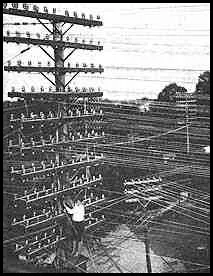The Supreme Court first considered the constitutionality of wiretapping in the 1928 case of Olmstead v. United States, 277 U.S. 438 (1928). The Court ruled that governmental wiretapping of telephone conversations fell outside the protection of the Fourth Amendment. The Court based its conclusion upon a narrow, textual reading of the amendment. First, the Court found that words spoken into a telephone were not tangible things and thus could not be subjected to a search or seizure. Second, it reasoned that because wiretapping could be accomplished without a trespass, there was no physical invasion of property to justify invoking the Fourth Amendment. Finally, the Court assumed that one who uses the telephone ‘‘intends to project his voice to those quite outside.’’
The ruling in Olmstead was controversial. more

